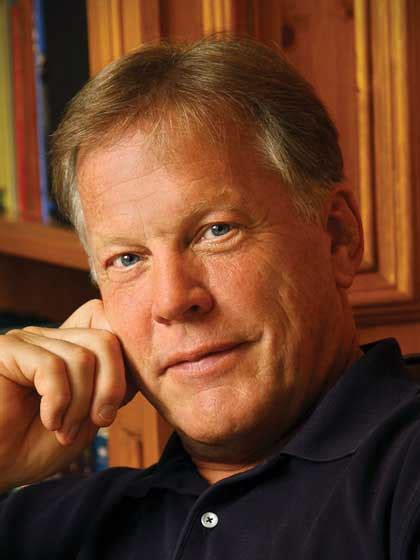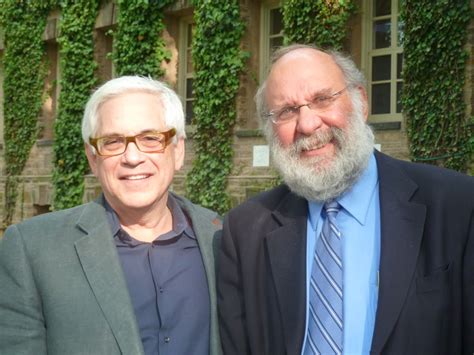A Quote by Colin McGinn
Bernard Williams has been a distinctive presence on the intellectual scene for more than three decades. . . . His writings do not offer the dubious exhilaration of grand philosophical theory, in which messy reality is tamed and caged, but the thrill of seeing pretension punctured by a kind of high-voltage common sense (backed up by impressive erudition). . . . There is no one in philosophy quite like him.
Quote Topics
Backed
Been
Bernard
Caged
Common
Common Sense
Decades
Distinctive
Dubious
Erudition
Exhilaration
Grand
High
Him
His
Impressive
Intellectual
Kind
Like
Messy
More
Offer
Philosophical
Philosophy
Presence
Pretension
Quite
Reality
Scene
Seeing
Sense
Tamed
Than
Theory
Three
Thrill
Up
Voltage
Which
Williams
Related Quotes
The proponents of UFOs offer up impressive quantities of principally eyewitness data, which although largely subjective and circumstantial in nature, is nevertheless quite intriguing.... Many of the high-quality sighting reports involve certain objective aspects, which, to an open-minded bystander, are quite impressive.
Common sense is not something rigid and stationary, but is in continuous transformation, becoming enriched with scientific notions and philosophical opinions that have entered into common circulation. 'Common sense' is the folklore of philosophy and always stands midway between folklore proper (folklore as it is normally understood) and the philosophy, science, and economics of the scientists. Common sense creates the folklore of the future, a relatively rigidified phase of popular knowledge in a given time and place.
Logical investigations can obviously be a useful tool for philosophy. They must, however, be informed by a sensitivity to the philosophical significance of the formalism and by a generous admixture of common sense, as well as a thorough understanding both of the basic concepts and of the technical details of the formal material used. It should not be supposed that the formalism can grind out philosophical results in a manner beyond the capacity of ordinary philosophical reasoning. There is no mathematical substitute for philosophy.
Quite early on, and certainly since I started writing, I found that philosophical questions occupied me more than any other kind. I hadn't really thought of them as being philosophical questions, but one rapidly comes to an understanding that philosophy's only really about two questions: 'What is true?' and 'What is good?'
The Western approach to reality is mostly through theory, and theory begins by denying reality - to talk about reality, to go around reality, to catch anything that attracts our sense-intellect and abstract it away from reality itself. Thus philosophy begins by saying that the outside world is not a basic fact, that its existence can be doubted and that every proposition in which the reality of the outside world is affirmed is not an evident proposition but one that needs to be divided, dissected and analyzed. It is to stand consciously aside and try to square a circle.
We thank Him less by words than by the serene happiness of silent acceptance. It is our emptiness in the presence of His reality, our silence in the presence of His infinitely rich silence, our joy in the bosom of the serene darkness in which His light holds us absorbed, it is all this that praises Him.
Our evangelical culture tends to take the awesome reality of a transcendent god who is worthy to be feared and downsize Him so He could fit into our "buddy system." The way we talk about Him, the way we pray, and, more strikingly, the way we live shows that we have somehow lost our sense of being appropriately awestruck in the presence of a holy and all-powerful God. It's been a long time since we've heard a good sermon on the "fear of God." If God were to show up visibly, many of us think we'd run up to Him and high-five Him for the good things He has done.
A performer may be taken in by his own act, convinced at the moment that the impression of reality which he fosters is the one and only reality. In such cases we have a sense in which the performer comes to be his own audience; he comes to be performer and observer of the same show. Presumably he introcepts or incorporates the standards he attempts to maintain in the presence of others so that even in their absence his conscience requires him to act in a socially proper way.
Common sense is the guy who tells you that you ought to have had your brakes relined last week before you smashed a front end this week. Common sense is the Monday morning quarterback who could have won the ball game if he had been on the team. But he never is. He's high up in the stands with a flask on his hip. Common sense is the little man in a grey suit who never makes a mistake in addition. But it's always someone else's money he's adding up.
But the blessed Bishop of Geneva taught his nuns another kind of prayer, which even the sick can make: to remain peacefully in the presence of God, manifesting our needs to Him with no other mental effort, like a poor person who uncovers his sores and by this means is more effective in inciting passers-by to do him some good than if he wore himself out trying to convince them of his need.
The image of the presence, whatever it was, waiting there for him to go -this image had not yet been so concrete for his nerves as when he stopped short of the point at which certainty would have come to him. For, with all his resolution, or more exactly with all his dread, he did stop short - he hung back from really seeing. The risk was too great and his fear too definite: it took at this moment an awful specific form.
In order to teach a course in the history of Western religious thought, I had to do a great deal of research in the writings within the Judaic and Christian traditions and I was astonished to find in those writings philosophical thought of great power and sophistication. These writings completely blew away all my opinions about what I had taken to be the irrationality or immaturity of religious ideas, opinions which were and still are fashionable in many intellectual and literary circles today.
This is a major, wide-ranging, and comprehensive book. A philosophical investigation that is also a literary and historical study, Truth and Truthfulness asks how and why we have come to think of accuracy, sincerity, and authenticity as virtues. Bernard Williams' account of their emergence is as detailed and imaginative as his defense of their importance is spirited and provocative. Williams asks hard questions, and gives them straightforward and controversial answers. His book does not simply describe and advocate these virtues of truthfulness; it manifests them.









































